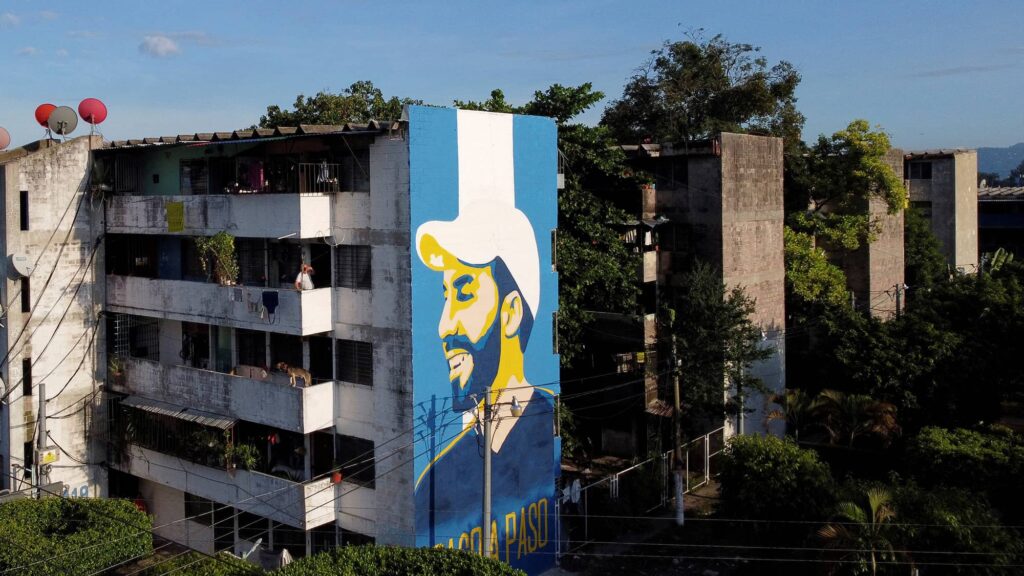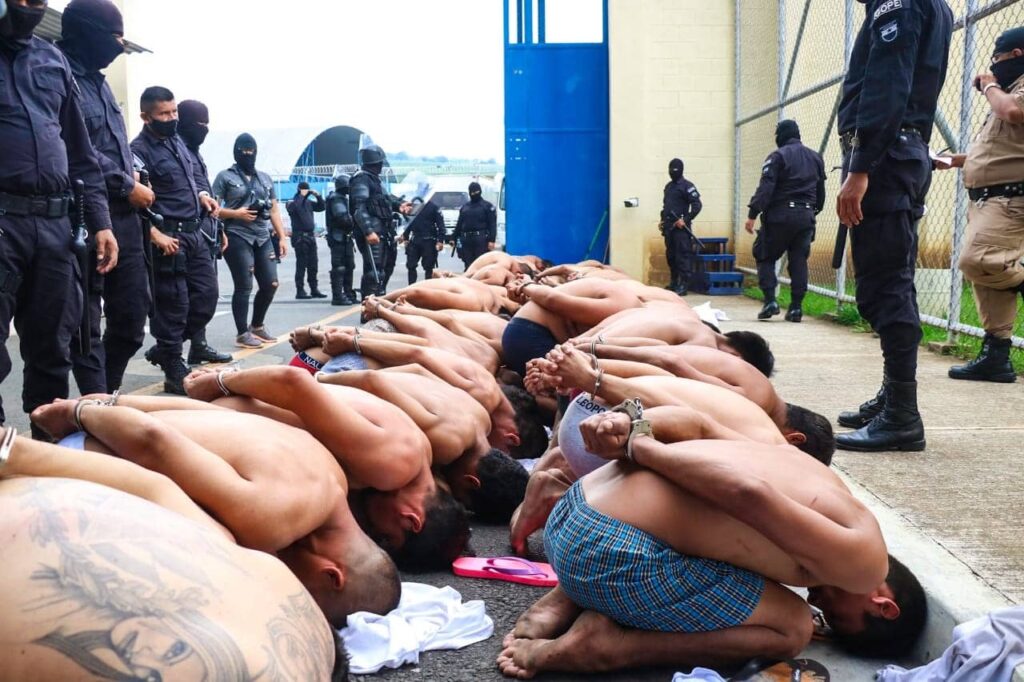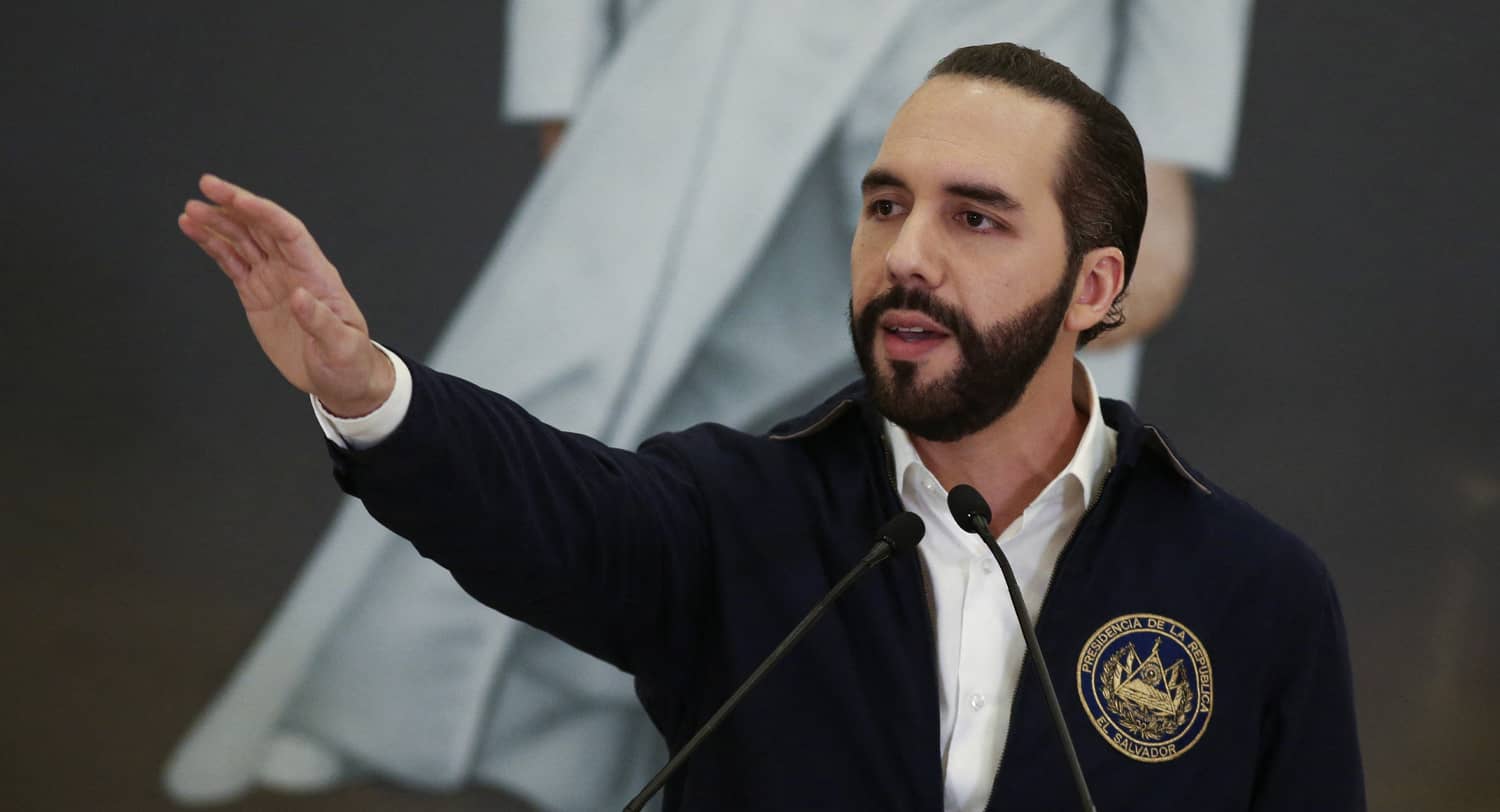Nayib Bukele has been reelected president of El Salvador. The Salvadoran constitution prohibits consecutive terms as president but Salvadorans looked past the legal prohibitions to elect their young, charismatic, and popular president to a second five-year term. Bukele’s new term in power has implications for El Salvador’s postwar democracy and other populist leaders in the region.
The only real surprise coming out of the February 4 election was the clumsy handling of the vote count. Despite 30 years of successful elections since the 1992 peace accords ending El Salvador’s civil war, this time around logistical and technical problems caused the preliminary vote count to be suspended less than 36 hours after the polls closed. Instead, the Supreme Electoral Tribunal ordered a final hand count to begin on February 6 as required by law.
In its February 21 report, the Organization of American States Electoral Observation Mission noted “problems with the final hand count including technological problems, failure to follow established procedures, and contradictory instructions to personnel…. The post-electoral process was deficient, slow and disorganized. However, the Mission has no doubts on the results delivered by the electoral authority.”
The final results were as anticipated. On February 29, the Supreme Electoral Tribunal certified that Bukele received 84.65 percent of the vote, the highest such margin in Salvadoran history.
Additionally, Bukele’s Nuevas Ideas party won 54 seats out of 60 in the unicameral Legislative Assembly, with two more votes likely from allied parties, leaving only two seats in the hands of a true opposition. With this supermajority Bukele has gained complete control of all branches of government – having already wrested control over the courts and attorney general – leaving almost no check on his power in the coming five years.
Who is Bukele?
A descendant of Christian and Muslim Palestinian migrants from Bethlehem, Bukele is a 42-year-old professional politician who began his public career at 31 as mayor of the wealthy suburb of Nuevo Cuscatlán on the outskirts of the capital, San Salvador. After serving one term, he successfully ran for mayor of San Salvador, serving from 2015 to 2018. Throughout his early career, his political affiliation was with the leftist FMLN, which had transitioned from an armed guerrilla group to a political party after the end of the country’s bloody civil war. Nevertheless, Bukele was not a historic member of the armed struggle and his relationship with the FMLM was always tenuous. He officially broke with them when he decided to run for President in 2018.

Why is he popular?
Early on, Bukele broke with the traditional parties of the right and left. Both had competed for years, with each winning the presidency twice and, in the process, incurring corruption scandals. Most importantly, neither party had demonstrated an ability to solve Salvadorans most pressing problems – insecurity and poverty. Overwhelmed by gang violence and diminished economic prospects, many Salvadorans fled the country seeking a better future to the north.
Bukele positioned himself outside the right/left divide, and defined himself as a new kind of politician and defender of average Salvadorans. He condemned corruption with the succinct slogan “There is enough money to go around as long as no one steals it.” But this alone would have been insufficient had he not also projected determination to end the stranglehold of El Salvador’s gangs had on the daily lives of so many Salvadorans.
In 2015, the year Bukele became mayor of San Salvador, the country had the world’s highest homicide rate (105 per 100,000 inhabitants). The historic center of San Salvador was the unchallenged domain of gang members from rival groups (MS-13 and 18 Street gangs) making it impossible for average Salvadorans to stroll the historic central park or attend services at the central cathedral where Saint Oscar Romero once spoke out against the violence engulfing the country in the late 1970s.
Mayor Bukele engaged in secret negotiations with the gangs. Using a combination of public pressure, strong security presence, and special treatment of gang leadership, he managed to clear out the historic center and create family-friendly areas with restaurants and good lighting, where Salvadorans could enjoy their city and feel proud.
In his presidential campaigns, Bukele crafted an image as an innovator. He effectively used social media to communicate directly with the public, giving the impression of greater transparency. He regularly attacked independent sources of information, especially investigative journalists, in terms familiar to Russian President Putin and Hungarian President Orban, accusing them of being part of an international conspiracy led by George Soros, the billionaire financier who founded and, until recently, led the Open Society Foundation, which supports independent journalism throughout Central America.
Two issues were particularly controversial during Bukele’s first term as president – pandemic-related expenditures and his dealings with gangs. He initially established a citizen oversight mechanism to monitor government expenses during the pandemic, but then dismantled it when some of its members – from the private sector to civil society – complained about the lack of information and compliance with government contracting regulations. Corruption during this period was widely denounced and noted by the US Treasury in a sanctioning announcement in December 2021.

The second sensitive issue involved the two-year state of exception declared in March 2022 to deal with gangs. These extraordinary measures allowed for the suspension of basic rights, such as freedom of association and expression, and they are widely credited with an ongoing decline in homicides and “territorial control” by gangs. They also resulted in mass arrests – nearly 80,000 – and mass trials of as many as 900 people; and extended pre-trial detention without charges or access to defense lawyers. Several hundred habeas corpus petitions have been denied by judges, and many families are left searching for the whereabouts of their loved ones. Nearly 200 cases of death while in custody have been dismissed by the government without investigation, claiming deaths due to natural causes.
Less visible was Bukele’s quiet and ongoing negotiations with gang leaders almost immediately upon taking office. Many analysts argue that Bukele has had an almost unbroken relationship with gangs since 2012. The US Treasury sanctioned two senior Bukele officials in 2020, noting that the Bukele administration was funding Salvadoran gangs MS-13 and Barrio 18 to ensure that incidents of gang violence and the number of confirmed homicides remained low and in exchange for gang support in upcoming elections.
Why should we care?
“Bukelismo” is becoming a model for other countries. Mexico’s main opposition presidential candidate (Xochitl Galvez) has stated she would like to model her security policies on those of Bukele and intends to build a new super maximum prison for criminals. Honduras has already copied the Salvadoran state of exception, but with meager results. Other countries have also called for importing the Bukele model and have invited Salvadoran advisors to give seminars. On the other hand, a Bukele-style populist, Jair Bolsonaro, lost in the recent elections in Brazil.
Latin America is in the midst of a trend toward greater populism of both the left and the right. A common thread is less ideology, less transparency, less accountability for government officials, and fewer of the freedoms associated with a liberal democracy. Many citizens have argued that democracy has failed to deliver on the needs of citizens so they are willing to accept authoritarian and populist solutions in exchange for more security. Whether the tradeoffs associated with these policies are temporary (with freedoms to be gradually restored as security improves) or more permanent is not clear. For now, liberal democracy in El Salvador, Central America, and throughout the Americas deserves further close monitoring.

